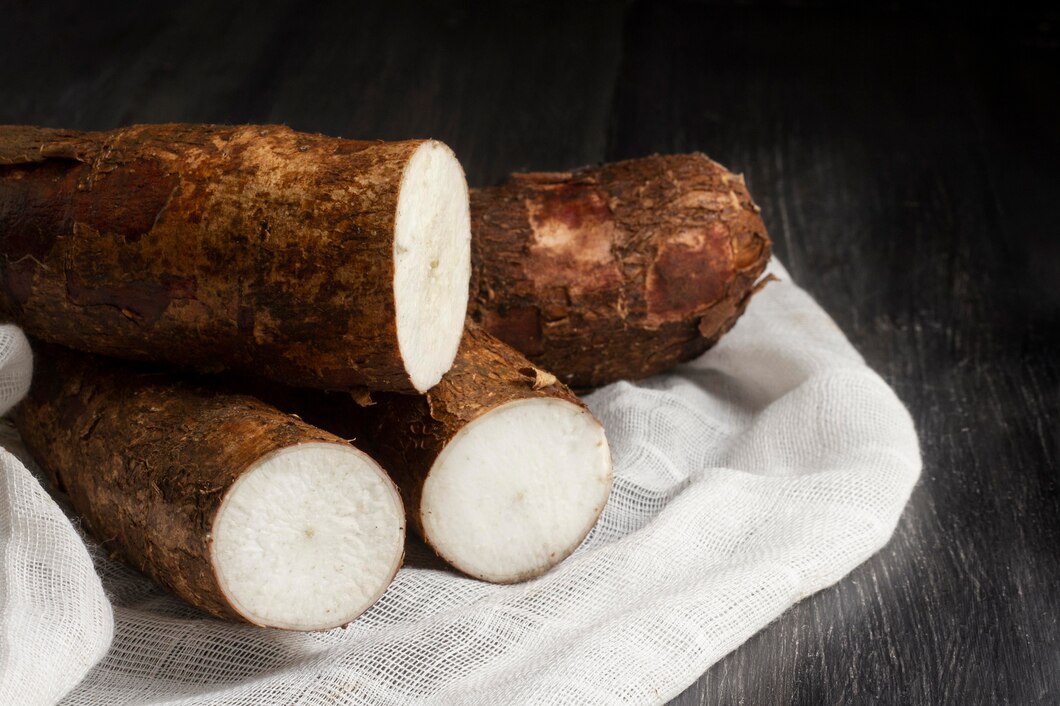Many traditional and local delicacies worldwide feature ingredients that, when prepared improperly, can be harmful or even deadly. In South Africa and beyond, certain foods that form part of beloved dishes carry risks due to natural toxins, contamination, or poor handling. Here are 10 foods that can be poisonous if not prepared or consumed carefully:
1. Cassava
Cassava, known locally as manioc or mogo, is a staple in many African countries, including South Africa. However, raw cassava contains cyanogenic glycosides, compounds that release cyanide when eaten. Proper peeling, soaking, and cooking are necessary to remove these toxins. Consuming improperly prepared cassava can lead to cyanide poisoning, resulting in symptoms like dizziness, nausea, and, in extreme cases, death.
2. Ackee
Popular in Caribbean dishes but sometimes found in African and South African fusion cuisine, the ackee fruit can be toxic if not fully ripe. The unripened fruit contains hypoglycin, a toxin that can cause severe vomiting, hypoglycemia, and even coma, known as Jamaican vomiting sickness. Only the yellow flesh of the fully ripe fruit is safe to eat.
3. Fugu (Pufferfish)
Although pufferfish (or fugu) is more popular in Japanese cuisine, adventurous diners in South Africa may encounter it in high-end sushi restaurants. Pufferfish contains tetrodotoxin, a potent neurotoxin. It must be meticulously prepared by licensed chefs, as even a small amount of the toxin can paralyze the muscles, including the heart, leading to death.
4. Wild Mushrooms
Foraging for mushrooms is a common practice in many cultures, including parts of South Africa. However, wild mushrooms can be extremely dangerous, with some varieties containing deadly toxins like amatoxins. These toxins can cause severe liver and kidney damage, leading to death if not treated quickly. It’s crucial to only eat mushrooms that have been properly identified by experts.
5. Sour Plums (Ximenia caffra)
The fruit of the sour plum tree, commonly found in South Africa, is used in jams, drinks, and sauces. However, its seeds and unripe fruit contain cyanogenic compounds that can produce cyanide. It is safe to eat when fully ripe and cooked, but care must be taken with the seeds and immature fruits.
6. Apricot Kernels
Apricot kernels, sometimes used in traditional remedies or found in the fruit itself, contain amygdalin, a compound that converts to cyanide when ingested. Consuming even a small amount of raw apricot kernels can lead to cyanide poisoning, causing headaches, nausea, and in extreme cases, death.
7. Red Kidney Beans
Red kidney beans are a popular ingredient in various South African dishes, especially stews and curries. However, raw or undercooked red kidney beans contain high levels of lectins, specifically phytohaemagglutinin, which can cause severe food poisoning, leading to nausea, vomiting, and diarrhea. Boiling the beans for at least 10 minutes neutralizes the toxin.
8. Rhubarb
Rhubarb stalks are safe to eat and commonly used in pies, jams, and desserts. However, the leaves contain oxalic acid and anthraquinone glycosides, which can be toxic. Consuming the leaves in large amounts can cause difficulty breathing, seizures, and kidney failure.
9. Elderberries
Elderberries, used in syrups, wines, and jams, are enjoyed for their immune-boosting properties. However, the raw berries, leaves, and seeds contain cyanogenic glycosides, which can release cyanide when ingested. Eating raw or undercooked elderberries can result in nausea, vomiting, and diarrhea.
10. Bitter Almonds
Bitter almonds contain high levels of amygdalin, which can produce cyanide in the body. Consuming even a small quantity of raw bitter almonds can lead to cyanide poisoning, with symptoms such as dizziness, headaches, and in extreme cases, respiratory failure. Sweet almonds, commonly found in stores, are safe for consumption, but bitter almonds must be processed to remove toxins before being eaten.
Many local delicacies feature ingredients that, while delicious when properly prepared, carry significant risks if handled incorrectly. Understanding how to safely prepare and consume these foods is vital to avoid accidental poisoning. South Africans should be mindful of the potential dangers and take care to follow proper culinary practices to ensure these delicacies can be enjoyed safely.








